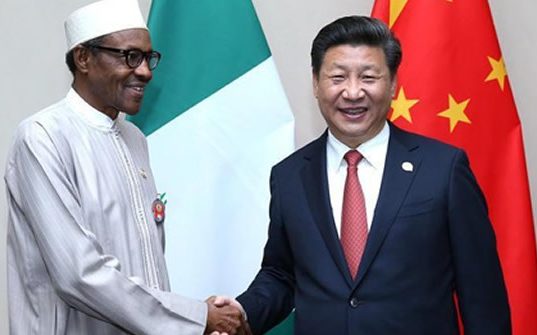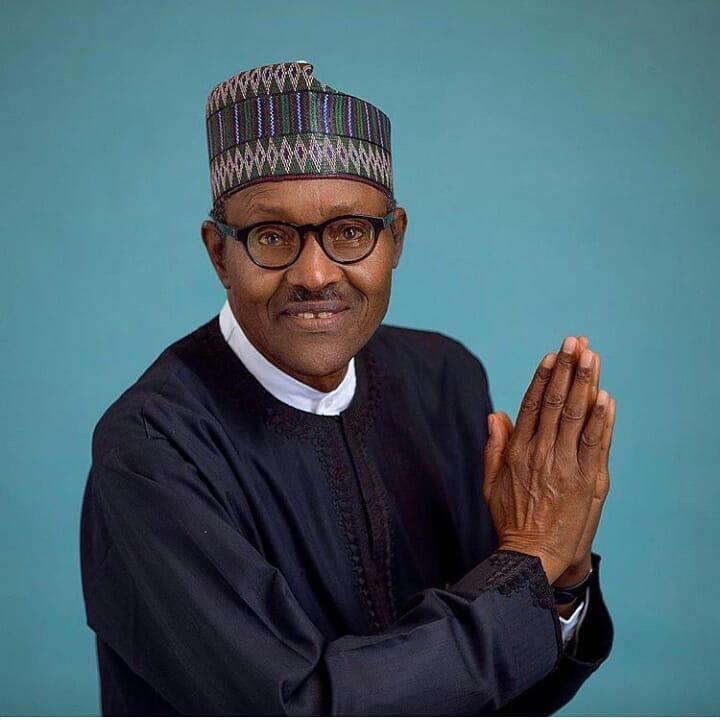
By Mohammed Momoh
Since Nigeria joined the Belt and Road Initiative (BRI) and became a member at a summit in Beijing in 2018, Nigeria has recorded tremendous success for common development as Africa’s largest economy and the most populous nation on the African continent.
The Belt and Road Initiative (BRI) is a Chinese proposal to build a Silk Road Economic Belt and 21st Century Maritime Silk Road in cooperation with related countries. It was unveiled by President Xi Jinping during his visit to South Asia in 2013.
The Initiative focuses on promoting policy coordination, connectivity of infrastructure and facilities, unimpeded trade, financial integration and closer people-to-people ties through a consultative process and joint efforts with the goal of bringing benefits to all.
So far, 126 countries including 26 European countries have signed the Belt and Road cooperation agreements with China (Nigeria inclusive).

Meanwhile, the Initiative and its core concepts have been incorporated into the G20, the Asia-Pacific Economic Cooperation, and the Shanghai Cooperation Organization. The BRI has become an important platform for achieving the UN’s 2030 Agenda for Sustainable Development.
China believes that Africa is part of the historical and natural extension of the Belt and Road Initiative. The declaration of the Forum on China and Africa Cooperation (FOCAC) 2018 in Beijing Summit and its 2019-2021 African Plan states that Africa is an important partner in the BRI cooperation.
It was at the recent Beijing Forum on China-Africa Cooperation (FOCAC) Summit and the Seventh Ministerial Conference of FOCAC that the “two-sides” (China-Africa) were encouraged by the comprehensive and effective implementation of the ten cooperation plans and the follow-up action of the FOCAC Johannesburg Action Plan (2016-2018) and decided to, in the spirit of the Beijing declaration, advance towards an even stronger China-Africa community with a shared future in order to jointly advance the Belt and Road cooperation.
Nigeria is among the 40 African countries that have signed the memorandum of understanding with Beijing, in furtherance of the BRI partnership.
According to Charles Onunaiju, Director of the Centre for China Studies in Nigeria, Nigeria has already started witnessing early harvest of the Belt and Road process as global public goods, and this fact is demonstrated in the recent photo exhibition of some vital infrastructure and industrial projects carried out by the Chinese companies in Nigeria under the BRI policy.

Even though the BRI was initially concentrated in East Africa where Beijing was developing multi-billion dollar mega infrastructural projects in Kenya (Nairobi – Mombasa standard gauge rail line), Ethiopia (Addis – Djibouti standard rail line) and TAZARA railway linking the port city of Dar el Salam in Tanzania with the town of Kapiri Mposhi in Zambia’s central province; Nigeria has had its fair share of many infrastructural projects over the years as government is rapidly engaging the Chinese.
Among the many finished projects and ongoing ones in Nigeria are: the popular Abuja – Kaduna standard gauge rail line, Abuja rail mass transit, new Abuja international airport terminal, Lagos – Ibadan standard gauge rail line, Port Harcourt international airport, Kano international airport, Lekki deep sea port project, Abuja township road project etc.
Infrastructure development by the Chinese in partnership with Nigerian government has been making impact in the lives of many Nigerians. For instance the Kaduna to Abuja rail service that was flagged off in 2016 has created major transportation channel from the capital city to the industrial and metropolitan city of Kaduna.
The Abuja – Kaduna rail line has also improved investment environment, promoted business trade, and safer passenger traffic and cargo transportation between the two major Nigerian cities.
Similarly, some dozens of Chinese enterprises of different scale are almost in every state of Nigeria thriving and contributing to the economy of those states and Nigeria in general.
According Charge d’Affaires of the Embassy of People’s Republic of China in Nigeria, Zhao Yong, trade volume between Nigeria and China has soared to 15.3billion USD in 2018; 10.8% higher than in 2017. Yong said this at a “Belt and Road” event: Nigeria and China Economic and Trade Forum held in Abuja in April 2019.
Accordingly, Li Xuda, Chinese Embassy Cultural Attaché and Director China Cultural Center recently at a celebration to mark 1000 days safe operations of the Abuja – Kaduna rail service expressed gratitude to the Nigerian government and Nigeria Railway corporations for the smooth relationship and cooperation between Nigeria and China on the Belt and Road Initiative (BRI). Mr. Li who represented the Embassy at the occasion added that Nigeria and China can move closer to promote mutually beneficially cooperation for common development.
Meanwhile, against the backdrop of rising protectionism and unilaterism, trade between China and African countries continue to grow significantly testifying the deepening economic relations between the “two sides”. African experts and officials have said.
According to statistics by China Customs Administration, trade volume between China and Africa soared from 10.6 billion USD in year 2000 to 204.2 USD in 2018.
In the same vein, the Export-Import bank of China (ChinaEximBank) has so far funded over 600 billion Yuan (87 billion USD) projects in more than 40 African countries who are mostly Belt and Road Initiative partners. The findings were mainly to support major projects with prominent economic and social benefits to Africa, the bank said. China Exim Bank is a state funded and state owned bank dedicated to supporting China’s foreign trade, investment and international economic cooperation.
President Xi Jinping, on describing how important and strategic relationship between China and Africa have become, pointed out that no matter how the international situation changes and despite the interference of certain powers, the original aspirations of China and Africa for win-win cooperation and common development will stay unchanged and the resolve to jointly build a closer community with a shared future will not waver. Mr. Xi said this when he met some African leaders on the sideline of G20 summit in Osaka, Japan last year.
Undoubtedly, China and Africa cooperation have moved from the pre-independent political cooperation of 1950’s to the post millennium economic cooperation of the 21st century. China-Africa friendship has always been on the basis of win-win cooperation for common development.
However, it is not surprising that in an effort to sustain and maintain such cooperation, over the years, Chinese Foreign Ministers made it a duty to visit Africa at the beginning of every new year. In fact, this year marks the 30th year since the Foreign Minister, Qian Qichen started the diplomatic shuttle with a maiden tour in 1990 to four African countries.
The very idea for such visits, according Foreign Minister Qian, was because China believes that economies around the world were becoming more independent especially after the end of cold war and Africa as a big group of countries in the United Nations family represents an important force in international affairs.
Expectedly, this year (2020) the tradition continues with the visit by the Foreign Minister Wang Yi to Egypt, Djibouti, Eritrea Burundi and Zimbabwe from 7-13 January; and coincidentally, this year too marks 20th anniversary of the establishment of Forum on China-Africa Cooperation (FOCAC).
During his visit to the continent, Mr. Wang Yi began with Egypt where he promised to help the country combat extremism.
In Djibouti, the Chinese Foreign Minister said china is willing to view relations with Djibouti from a strategic, long term perspective and deepen political mutual trust. He reiterated that the two countries should build “Belt and Road” together, vigorously promote bilateral pragmatic cooperation, and push China-Djibouti strategic partnership to a new level.
In Zimbabwe, China has increasingly broadened its ties to include the construction of a new parliament building estimated to cost more than $100 million. China also provides humanitarian assistance such as food items as well as technical assistance during natural disasters.
While in Burundi, the Chinese Foreign Minister assured President Pierre Nkurunziza of continued support in areas such as education, energy, and agriculture, China is also constructing a new state house building for the country.
Indeed, there is and there is going to be tremendous achievements for the over 40 member countries of the BRI as the initiative represents an authentic attempt by the world’s second largest economy to practise a new kind of diplomacy based on inclusiveness, equal opportunity, and respect for the diversity of cultures and political systems.













